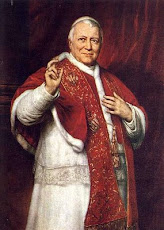Handel: As steals the morn upon the night (HWV 55)
George Frideric Handel (1685 - 1759).
L'Allegro, il Pensieroso ed il Moderato (HWV 55).
I. As steals the morn upon the night.
As steals the morn upon the night,
And melts the shades away:
So truth does fancy's charm dissolve,
And melts the shades away:
The fumes that did the mind involve,
Restoring intellectual day.
And as the morning steals upon the night,
Melting the darkness, so their rising senses
Begin to chase the ignorant fumes that mantle
Their clearer reason.
[William Shakespeare, The Tempest, Act 5, scene 1]
Freiburg Baroque Orchestra.
Orchestra of the Age of Enlightenment.
Kate Royal (Soprano).
Ian Bostridge (Tenor).
L'Allegro, il Pensieroso ed il Moderato (HWV 55) is a pastoral ode by George Frideric Handel based on the poetry of John Milton. Handel composed the work over the period of 19 January to 4 February 1740, and the work was premiered on 27 February 1740 at the Royal Theatre of Lincoln's Inn Fields. One of Handel's librettists, Charles Jennens, arranged Milton's two poems, L'Allegro and il Penseroso, interleaving them to create dramatic tension between the personified characters of Milton's poems (L'Allegro or the "Joyful man" and il Pensieroso or the "Contemplative man"). The first two movements consist of this dramatic dialog between Milton's poems. In an attempt to unite the two poems into a singular "moral design", Jennens added a new poem, "il Moderato", to create a third movement.
1. Handel: Music for the Royal Fireworks (HWV 351)
The Music for the Royal Fireworks (HWV 351).
Freiburg Baroque Orchestra.
Orchestra of the Age of Enlightenment.
Dir: Gottfried von der Goltz.
The Music for the Royal Fireworks was composed by George Frideric Handel in 1749 under contract of George II of Great Britain for the fireworks in London's Green Park on 27 April 1749. It was to celebrate the end of the War of the Austrian Succession and the signing of the Treaty of Aix-la-Chapelle in 1748.
The performing musicians were in a specially constructed building which had been designed by Servandoni, a theatre designer. The music provided a background for the royal fireworks. However, the display was not as successful as the music itself. The enormous wood building caught fire due after the collapse of a bas relief of George II. However, the music had been performed publicly six days earlier, on 21 April 1749 when there was a full rehearsal of the music at Vauxhall Gardens. Over twelve thousand people, each paying 2s 6d, rushed for it, causing a three-hour traffic jam of carriages, after the main route to the area south of the river was closed (the central arch of the newly built London Bridge had collapsed and had to be closed).
The performing musicians were in a specially constructed building which had been designed by Servandoni, a theatre designer. The music provided a background for the royal fireworks. However, the display was not as successful as the music itself. The enormous wood building caught fire due after the collapse of a bas relief of George II. However, the music had been performed publicly six days earlier, on 21 April 1749 when there was a full rehearsal of the music at Vauxhall Gardens. Over twelve thousand people, each paying 2s 6d, rushed for it, causing a three-hour traffic jam of carriages, after the main route to the area south of the river was closed (the central arch of the newly built London Bridge had collapsed and had to be closed).


































































0 comentarios:
Publicar un comentario